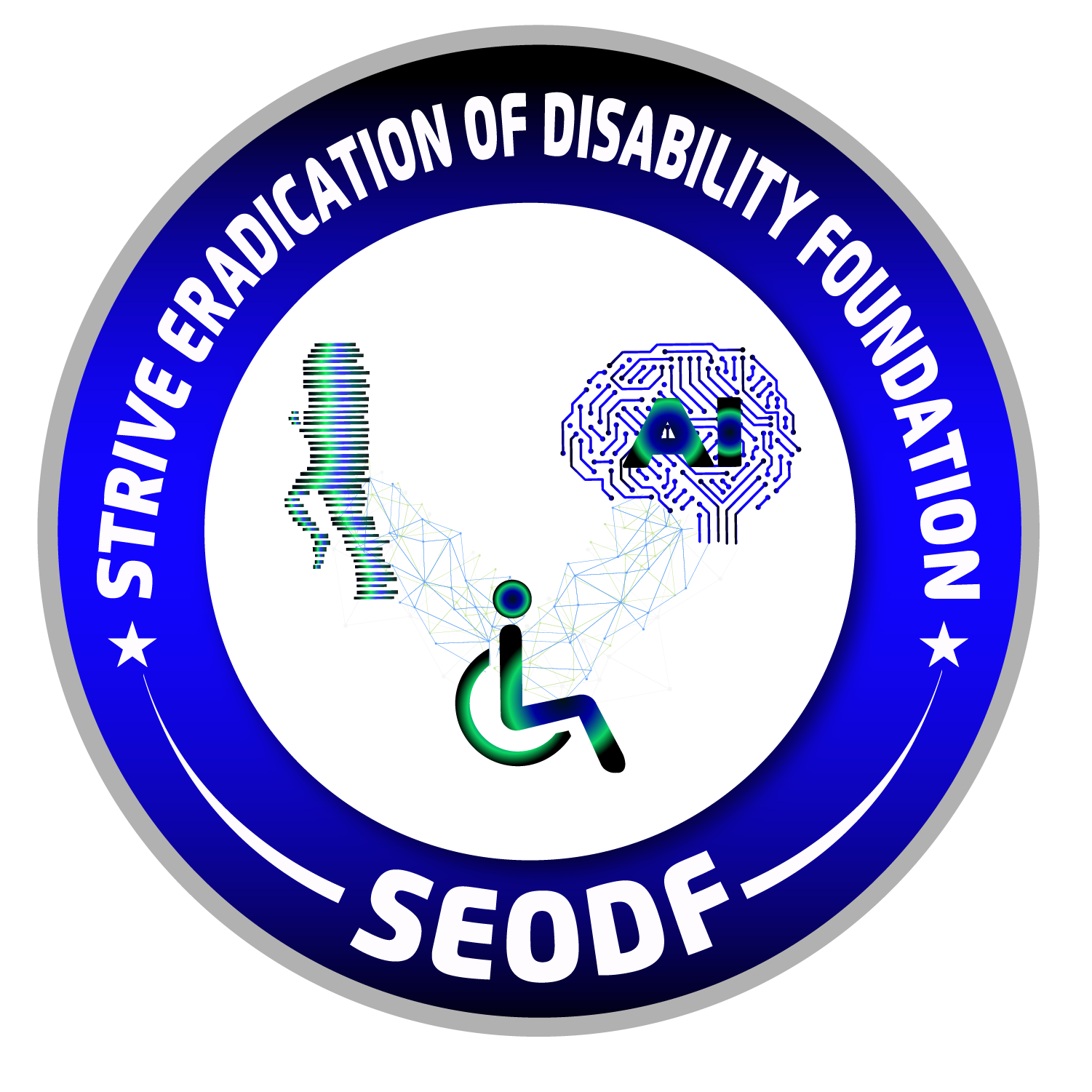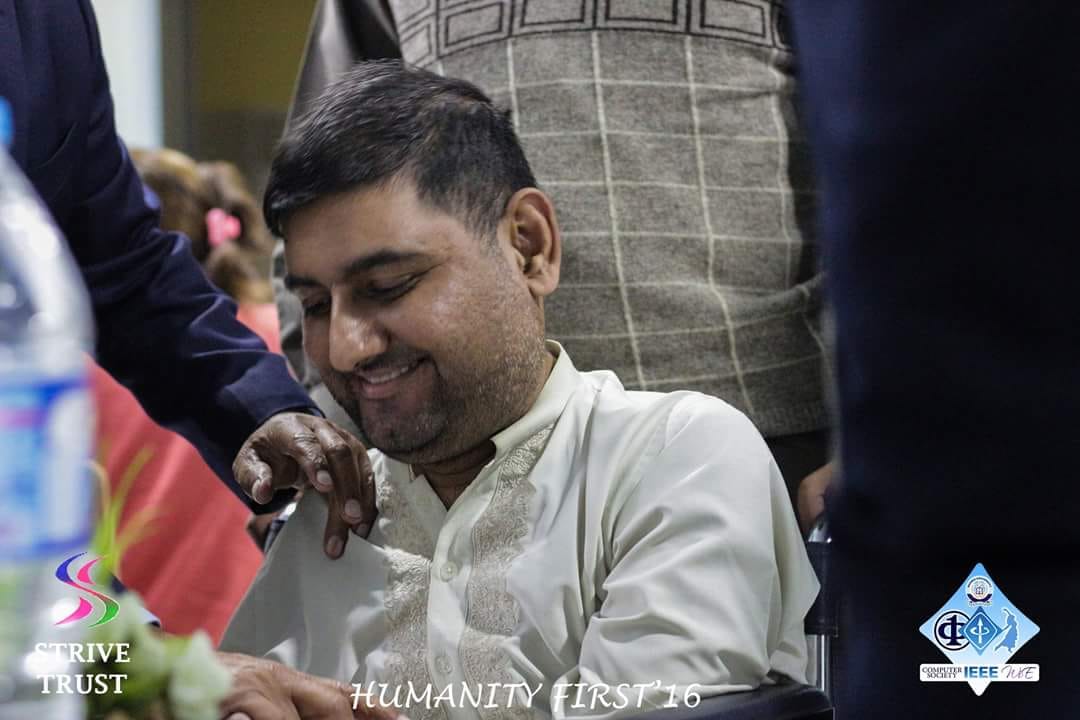Muhammad Yasir Khan
Chairman
the Founder Chairman of the STRIVE Trust, was born on June 1st, 1985, in the village of Naryola near Hajira City, District Poonch of Azad Jammu & Kashmir. During his elementary schooling, he displayed vibrancy and occasional minor symptoms of his eventual ailment. He was an enthusiastic participant in sports, with cricket as his ultimate passion. Unfortunately, his elder brother’s death prompted concerns about his health. This led to consultations with various doctors and hospital visits. In 1994, a specialist at Agha Khan Hospital diagnosed him with ANTERIOR HORN CELL DISEASE (AHCD).
Over time, persistent fatigue and general weakness set in. In 1999, he received the diagnosis of Spinal Muscular Atrophy (SMA) type III. Regrettably, there were no treatments or specialized therapies available for SMA in Pakistan.
His deteriorating physical condition forced him to halt his schooling at grade five. The years 2003–2004 proved to be the most challenging, filled with uncertainty. In 2004, he reached out to his uncle in the UK, who brought a ray of hope. He learned that while no treatment existed for SMA, research on stem cell therapies for SMA and other disabling diseases was progressing rapidly.
His deteriorating physical condition forced him to halt his schooling at grade five. The years 2003–2004 proved to be the most challenging, filled with uncertainty. In 2004, he reached out to his uncle in the UK, who brought a ray of hope. He learned that while no treatment existed for SMA, research on stem cell therapies for SMA and other disabling diseases was progressing rapidly.
This news became a turning point, shifting his focus toward science and technology. He pursued tools to stay updated on research and discoveries, inspiring countless others facing disabilities. He became a beacon of hope and positivity despite his suffering.
Determined not to accept disability as his reality, he embraced it as a challenge. Rather than succumbing to hopelessness, he became an ambassador of hope and optimism. Connecting with like-minded individuals and organizations, he advocated for social change. His conviction was that lighting a candle was more effective than cursing the darkness.
To achieve self-reliance, he initiated small entrepreneurial projects such as private schools, advertising agencies, academies, and real estate ventures. While not driven solely by profit, these ventures allowed him to gain exposure and experience, spreading positivity wherever he went. He observed a lack of awareness and support for persons with disabilities (PWDs) in society and engaged with organizations for advocacy.
Despite his worsening condition, he continued to inspire hope in those losing faith. He noticed that some organizations were exploiting disabilities rather than genuinely assisting PWDs, leading him to distance himself from them. Meanwhile, his own health continued to decline.
On the other hand, medical science in Pakistan showed little progress. As years passed, his condition worsened to the point where he required assistance from two trained individuals for daily activities. It has been nearly twenty-three years since he became wheelchair-bound.
In 2010, he conceptualized an organization. With friends who shared his vision, he founded the STRIVE Trust and the Ibn-e-Sina Physiotherapy and Rehabilitation Center (IPRC) in Pakistan. Their mission was to raise awareness, provide hope, and assist people with disabilities. After a decade of impactful work, IPRC ceased operations, and the STRIVE Trust redirected its efforts towards global collaboration to ensure accessible treatments for disabled individuals in Pakistan.
Under his leadership, the STRIVE Trust worked relentlessly to introduce advanced treatments in Pakistan. Notably, “Evrysdi,” the first-ever FDA-approved drug for SMA launched in Pakistan, marked a monumental breakthrough for the SMA community. The treatment now saves the lives of children with severe SMA due to the remarkable efforts of STRIVE and its founder. STRIVE remains at the forefront of this battle, with Muhammad Yasir Khan’s dedication extending to making other FDA-approved SMA treatments like ZolgenSMA and Spinraza available in the country, thereby expanding options for SMA patients.
However, his aspirations went beyond SMA treatment. He envisioned a future where all disabilities could be eradicated due to remarkable advancements in medical science. Passionate about tec

